Residential
Commercial
Industrial
Ion Exchange
Salt-Free Water Softening
Reverse Osmosis
Single Tank
Dual Tank
Single Tank with Filter
Households
Hotels
Manufacturing Plants
North America
Europe
South America
Asia Pacific
Middle East and Africa
North America Outlook (USD Billion, 2019-2035)
North America Water Softening Systems Market by Application Type
Residential
Commercial
Industrial
North America Water Softening Systems Market by Technology Type
Ion Exchange
Salt-Free Water Softening
Reverse Osmosis
North America Water Softening Systems Market by Mechanism Type
Single Tank
Dual Tank
Single Tank with Filter
North America Water Softening Systems Market by End Use Type
Households
Hotels
Manufacturing Plants
North America Water Softening Systems Market by Regional Type
US
Canada
US Outlook (USD Billion, 2019-2035)
US Water Softening Systems Market by Application Type
Residential
Commercial
Industrial
US Water Softening Systems Market by Technology Type
Ion Exchange
Salt-Free Water Softening
Reverse Osmosis
US Water Softening Systems Market by Mechanism Type
Single Tank
Dual Tank
Single Tank with Filter
US Water Softening Systems Market by End Use Type
Households
Hotels
Manufacturing Plants
CANADA Outlook (USD Billion, 2019-2035)
CANADA Water Softening Systems Market by Application Type
Residential
Commercial
Industrial
CANADA Water Softening Systems Market by Technology Type
Ion Exchange
Salt-Free Water Softening
Reverse Osmosis
CANADA Water Softening Systems Market by Mechanism Type
Single Tank
Dual Tank
Single Tank with Filter
CANADA Water Softening Systems Market by End Use Type
Households
Hotels
Manufacturing Plants
Europe Outlook (USD Billion, 2019-2035)
Europe Water Softening Systems Market by Application Type
Residential
Commercial
Industrial
Europe Water Softening Systems Market by Technology Type
Ion Exchange
Salt-Free Water Softening
Reverse Osmosis
Europe Water Softening Systems Market by Mechanism Type
Single Tank
Dual Tank
Single Tank with Filter
Europe Water Softening Systems Market by End Use Type
Households
Hotels
Manufacturing Plants
Europe Water Softening Systems Market by Regional Type
Germany
UK
France
Russia
Italy
Spain
Rest of Europe
GERMANY Outlook (USD Billion, 2019-2035)
GERMANY Water Softening Systems Market by Application Type
Residential
Commercial
Industrial
GERMANY Water Softening Systems Market by Technology Type
Ion Exchange
Salt-Free Water Softening
Reverse Osmosis
GERMANY Water Softening Systems Market by Mechanism Type
Single Tank
Dual Tank
Single Tank with Filter
GERMANY Water Softening Systems Market by End Use Type
Households
Hotels
Manufacturing Plants
UK Outlook (USD Billion, 2019-2035)
UK Water Softening Systems Market by Application Type
Residential
Commercial
Industrial
UK Water Softening Systems Market by Technology Type
Ion Exchange
Salt-Free Water Softening
Reverse Osmosis
UK Water Softening Systems Market by Mechanism Type
Single Tank
Dual Tank
Single Tank with Filter
UK Water Softening Systems Market by End Use Type
Households
Hotels
Manufacturing Plants
FRANCE Outlook (USD Billion, 2019-2035)
FRANCE Water Softening Systems Market by Application Type
Residential
Commercial
Industrial
FRANCE Water Softening Systems Market by Technology Type
Ion Exchange
Salt-Free Water Softening
Reverse Osmosis
FRANCE Water Softening Systems Market by Mechanism Type
Single Tank
Dual Tank
Single Tank with Filter
FRANCE Water Softening Systems Market by End Use Type
Households
Hotels
Manufacturing Plants
RUSSIA Outlook (USD Billion, 2019-2035)
RUSSIA Water Softening Systems Market by Application Type
Residential
Commercial
Industrial
RUSSIA Water Softening Systems Market by Technology Type
Ion Exchange
Salt-Free Water Softening
Reverse Osmosis
RUSSIA Water Softening Systems Market by Mechanism Type
Single Tank
Dual Tank
Single Tank with Filter
RUSSIA Water Softening Systems Market by End Use Type
Households
Hotels
Manufacturing Plants
ITALY Outlook (USD Billion, 2019-2035)
ITALY Water Softening Systems Market by Application Type
Residential
Commercial
Industrial
ITALY Water Softening Systems Market by Technology Type
Ion Exchange
Salt-Free Water Softening
Reverse Osmosis
ITALY Water Softening Systems Market by Mechanism Type
Single Tank
Dual Tank
Single Tank with Filter
ITALY Water Softening Systems Market by End Use Type
Households
Hotels
Manufacturing Plants
SPAIN Outlook (USD Billion, 2019-2035)
SPAIN Water Softening Systems Market by Application Type
Residential
Commercial
Industrial
SPAIN Water Softening Systems Market by Technology Type
Ion Exchange
Salt-Free Water Softening
Reverse Osmosis
SPAIN Water Softening Systems Market by Mechanism Type
Single Tank
Dual Tank
Single Tank with Filter
SPAIN Water Softening Systems Market by End Use Type
Households
Hotels
Manufacturing Plants
REST OF EUROPE Outlook (USD Billion, 2019-2035)
REST OF EUROPE Water Softening Systems Market by Application Type
Residential
Commercial
Industrial
REST OF EUROPE Water Softening Systems Market by Technology Type
Ion Exchange
Salt-Free Water Softening
Reverse Osmosis
REST OF EUROPE Water Softening Systems Market by Mechanism Type
Single Tank
Dual Tank
Single Tank with Filter
REST OF EUROPE Water Softening Systems Market by End Use Type
Households
Hotels
Manufacturing Plants
APAC Outlook (USD Billion, 2019-2035)
APAC Water Softening Systems Market by Application Type
Residential
Commercial
Industrial
APAC Water Softening Systems Market by Technology Type
Ion Exchange
Salt-Free Water Softening
Reverse Osmosis
APAC Water Softening Systems Market by Mechanism Type
Single Tank
Dual Tank
Single Tank with Filter
APAC Water Softening Systems Market by End Use Type
Households
Hotels
Manufacturing Plants
APAC Water Softening Systems Market by Regional Type
China
India
Japan
South Korea
Malaysia
Thailand
Indonesia
Rest of APAC
CHINA Outlook (USD Billion, 2019-2035)
CHINA Water Softening Systems Market by Application Type
Residential
Commercial
Industrial
CHINA Water Softening Systems Market by Technology Type
Ion Exchange
Salt-Free Water Softening
Reverse Osmosis
CHINA Water Softening Systems Market by Mechanism Type
Single Tank
Dual Tank
Single Tank with Filter
CHINA Water Softening Systems Market by End Use Type
Households
Hotels
Manufacturing Plants
INDIA Outlook (USD Billion, 2019-2035)
INDIA Water Softening Systems Market by Application Type
Residential
Commercial
Industrial
INDIA Water Softening Systems Market by Technology Type
Ion Exchange
Salt-Free Water Softening
Reverse Osmosis
INDIA Water Softening Systems Market by Mechanism Type
Single Tank
Dual Tank
Single Tank with Filter
INDIA Water Softening Systems Market by End Use Type
Households
Hotels
Manufacturing Plants
JAPAN Outlook (USD Billion, 2019-2035)
JAPAN Water Softening Systems Market by Application Type
Residential
Commercial
Industrial
JAPAN Water Softening Systems Market by Technology Type
Ion Exchange
Salt-Free Water Softening
Reverse Osmosis
JAPAN Water Softening Systems Market by Mechanism Type
Single Tank
Dual Tank
Single Tank with Filter
JAPAN Water Softening Systems Market by End Use Type
Households
Hotels
Manufacturing Plants
SOUTH KOREA Outlook (USD Billion, 2019-2035)
SOUTH KOREA Water Softening Systems Market by Application Type
Residential
Commercial
Industrial
SOUTH KOREA Water Softening Systems Market by Technology Type
Ion Exchange
Salt-Free Water Softening
Reverse Osmosis
SOUTH KOREA Water Softening Systems Market by Mechanism Type
Single Tank
Dual Tank
Single Tank with Filter
SOUTH KOREA Water Softening Systems Market by End Use Type
Households
Hotels
Manufacturing Plants
MALAYSIA Outlook (USD Billion, 2019-2035)
MALAYSIA Water Softening Systems Market by Application Type
Residential
Commercial
Industrial
MALAYSIA Water Softening Systems Market by Technology Type
Ion Exchange
Salt-Free Water Softening
Reverse Osmosis
MALAYSIA Water Softening Systems Market by Mechanism Type
Single Tank
Dual Tank
Single Tank with Filter
MALAYSIA Water Softening Systems Market by End Use Type
Households
Hotels
Manufacturing Plants
THAILAND Outlook (USD Billion, 2019-2035)
THAILAND Water Softening Systems Market by Application Type
Residential
Commercial
Industrial
THAILAND Water Softening Systems Market by Technology Type
Ion Exchange
Salt-Free Water Softening
Reverse Osmosis
THAILAND Water Softening Systems Market by Mechanism Type
Single Tank
Dual Tank
Single Tank with Filter
THAILAND Water Softening Systems Market by End Use Type
Households
Hotels
Manufacturing Plants
INDONESIA Outlook (USD Billion, 2019-2035)
INDONESIA Water Softening Systems Market by Application Type
Residential
Commercial
Industrial
INDONESIA Water Softening Systems Market by Technology Type
Ion Exchange
Salt-Free Water Softening
Reverse Osmosis
INDONESIA Water Softening Systems Market by Mechanism Type
Single Tank
Dual Tank
Single Tank with Filter
INDONESIA Water Softening Systems Market by End Use Type
Households
Hotels
Manufacturing Plants
REST OF APAC Outlook (USD Billion, 2019-2035)
REST OF APAC Water Softening Systems Market by Application Type
Residential
Commercial
Industrial
REST OF APAC Water Softening Systems Market by Technology Type
Ion Exchange
Salt-Free Water Softening
Reverse Osmosis
REST OF APAC Water Softening Systems Market by Mechanism Type
Single Tank
Dual Tank
Single Tank with Filter
REST OF APAC Water Softening Systems Market by End Use Type
Households
Hotels
Manufacturing Plants
South America Outlook (USD Billion, 2019-2035)
South America Water Softening Systems Market by Application Type
Residential
Commercial
Industrial
South America Water Softening Systems Market by Technology Type
Ion Exchange
Salt-Free Water Softening
Reverse Osmosis
South America Water Softening Systems Market by Mechanism Type
Single Tank
Dual Tank
Single Tank with Filter
South America Water Softening Systems Market by End Use Type
Households
Hotels
Manufacturing Plants
South America Water Softening Systems Market by Regional Type
Brazil
Mexico
Argentina
Rest of South America
BRAZIL Outlook (USD Billion, 2019-2035)
BRAZIL Water Softening Systems Market by Application Type
Residential
Commercial
Industrial
BRAZIL Water Softening Systems Market by Technology Type
Ion Exchange
Salt-Free Water Softening
Reverse Osmosis
BRAZIL Water Softening Systems Market by Mechanism Type
Single Tank
Dual Tank
Single Tank with Filter
BRAZIL Water Softening Systems Market by End Use Type
Households
Hotels
Manufacturing Plants
MEXICO Outlook (USD Billion, 2019-2035)
MEXICO Water Softening Systems Market by Application Type
Residential
Commercial
Industrial
MEXICO Water Softening Systems Market by Technology Type
Ion Exchange
Salt-Free Water Softening
Reverse Osmosis
MEXICO Water Softening Systems Market by Mechanism Type
Single Tank
Dual Tank
Single Tank with Filter
MEXICO Water Softening Systems Market by End Use Type
Households
Hotels
Manufacturing Plants
ARGENTINA Outlook (USD Billion, 2019-2035)
ARGENTINA Water Softening Systems Market by Application Type
Residential
Commercial
Industrial
ARGENTINA Water Softening Systems Market by Technology Type
Ion Exchange
Salt-Free Water Softening
Reverse Osmosis
ARGENTINA Water Softening Systems Market by Mechanism Type
Single Tank
Dual Tank
Single Tank with Filter
ARGENTINA Water Softening Systems Market by End Use Type
Households
Hotels
Manufacturing Plants
REST OF SOUTH AMERICA Outlook (USD Billion, 2019-2035)
REST OF SOUTH AMERICA Water Softening Systems Market by Application Type
Residential
Commercial
Industrial
REST OF SOUTH AMERICA Water Softening Systems Market by Technology Type
Ion Exchange
Salt-Free Water Softening
Reverse Osmosis
REST OF SOUTH AMERICA Water Softening Systems Market by Mechanism Type
Single Tank
Dual Tank
Single Tank with Filter
REST OF SOUTH AMERICA Water Softening Systems Market by End Use Type
Households
Hotels
Manufacturing Plants
MEA Outlook (USD Billion, 2019-2035)
MEA Water Softening Systems Market by Application Type
Residential
Commercial
Industrial
MEA Water Softening Systems Market by Technology Type
Ion Exchange
Salt-Free Water Softening
Reverse Osmosis
MEA Water Softening Systems Market by Mechanism Type
Single Tank
Dual Tank
Single Tank with Filter
MEA Water Softening Systems Market by End Use Type
Households
Hotels
Manufacturing Plants
MEA Water Softening Systems Market by Regional Type
GCC Countries
South Africa
Rest of MEA
GCC COUNTRIES Outlook (USD Billion, 2019-2035)
GCC COUNTRIES Water Softening Systems Market by Application Type
Residential
Commercial
Industrial
GCC COUNTRIES Water Softening Systems Market by Technology Type
Ion Exchange
Salt-Free Water Softening
Reverse Osmosis
GCC COUNTRIES Water Softening Systems Market by Mechanism Type
Single Tank
Dual Tank
Single Tank with Filter
GCC COUNTRIES Water Softening Systems Market by End Use Type
Households
Hotels
Manufacturing Plants
SOUTH AFRICA Outlook (USD Billion, 2019-2035)
SOUTH AFRICA Water Softening Systems Market by Application Type
Residential
Commercial
Industrial
SOUTH AFRICA Water Softening Systems Market by Technology Type
Ion Exchange
Salt-Free Water Softening
Reverse Osmosis
SOUTH AFRICA Water Softening Systems Market by Mechanism Type
Single Tank
Dual Tank
Single Tank with Filter
SOUTH AFRICA Water Softening Systems Market by End Use Type
Households
Hotels
Manufacturing Plants
REST OF MEA Outlook (USD Billion, 2019-2035)
REST OF MEA Water Softening Systems Market by Application Type
Residential
Commercial
Industrial
REST OF MEA Water Softening Systems Market by Technology Type
Ion Exchange
Salt-Free Water Softening
Reverse Osmosis
REST OF MEA Water Softening Systems Market by Mechanism Type
Single Tank
Dual Tank
Single Tank with Filter
REST OF MEA Water Softening Systems Market by End Use Type
Households
Hotels
Manufacturing Plants


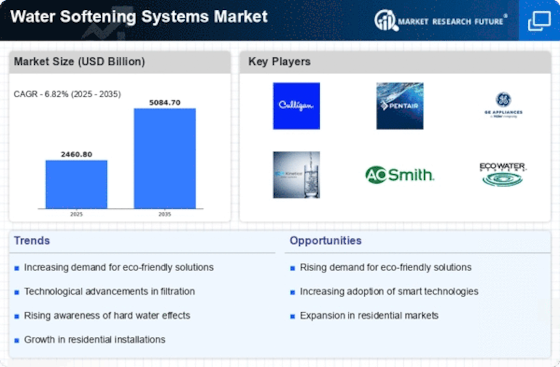

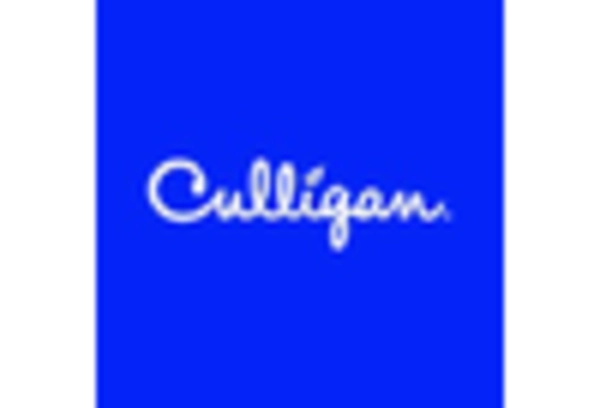
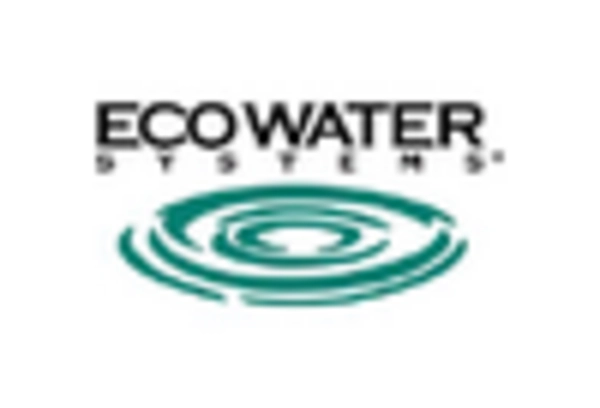
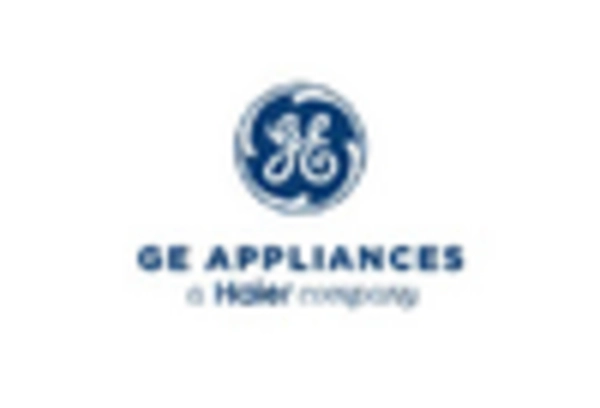
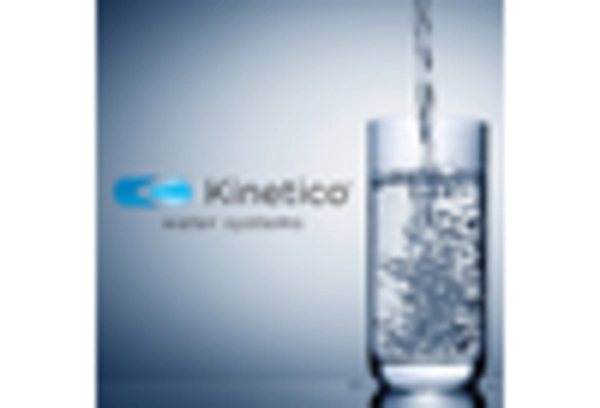










Leave a Comment